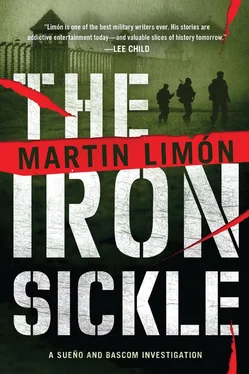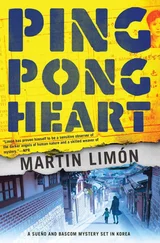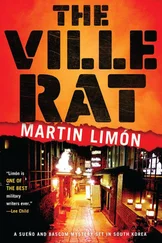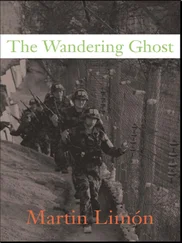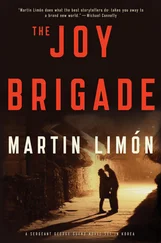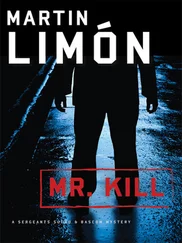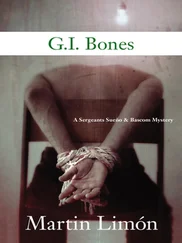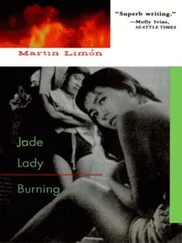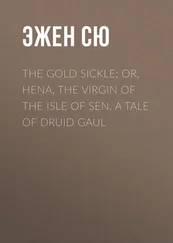Martin Limon - The Iron Sickle
Здесь есть возможность читать онлайн «Martin Limon - The Iron Sickle» весь текст электронной книги совершенно бесплатно (целиком полную версию без сокращений). В некоторых случаях можно слушать аудио, скачать через торрент в формате fb2 и присутствует краткое содержание. Год выпуска: 2014, ISBN: 2014, Издательство: Soho Press, Жанр: Полицейский детектив, на английском языке. Описание произведения, (предисловие) а так же отзывы посетителей доступны на портале библиотеки ЛибКат.
- Название:The Iron Sickle
- Автор:
- Издательство:Soho Press
- Жанр:
- Год:2014
- ISBN:978-1-61695-392-8
- Рейтинг книги:3 / 5. Голосов: 1
-
Избранное:Добавить в избранное
- Отзывы:
-
Ваша оценка:
- 60
- 1
- 2
- 3
- 4
- 5
The Iron Sickle: краткое содержание, описание и аннотация
Предлагаем к чтению аннотацию, описание, краткое содержание или предисловие (зависит от того, что написал сам автор книги «The Iron Sickle»). Если вы не нашли необходимую информацию о книге — напишите в комментариях, мы постараемся отыскать её.
The Iron Sickle — читать онлайн бесплатно полную книгу (весь текст) целиком
Ниже представлен текст книги, разбитый по страницам. Система сохранения места последней прочитанной страницы, позволяет с удобством читать онлайн бесплатно книгу «The Iron Sickle», без необходимости каждый раз заново искать на чём Вы остановились. Поставьте закладку, и сможете в любой момент перейти на страницу, на которой закончили чтение.
Интервал:
Закладка:
“I have guard duty tonight,” I said, hating myself for my tone of voice. It was as if I were conjuring up an excuse that was my last line of defense. And maybe I was. The thought of going out with an American female officer was something I’d never even considered. We were constantly being warned against fraternization between ranks.
Captain Prevault continued to stare at me evenly, but the smooth complexion of her face took on just the shadow of a frown.
“Perhaps some other time then,” she said.
“Perhaps,” I agreed, not knowing what else to say. “Some other time.”
I turned and fled from her office.
Grimes was surprised to see me.
“I thought they took you guys off of guard duty.”
“Back on again,” I said.
A steady drizzle spattered the mud around us. We wore army-issue rain gear: hooded plastic parkas over weather-resistant trousers that were held up by suspenders. We stared at the same filth-filled drainage canal we’d stared at the previous night, flushed now with rushing water. But instead of somber darkness beyond the concertina wire, there were rows of yellow lights about a quarter-mile in the distance and beyond them, flashing neon and cars whizzing through the rain.
“Curfew in less than an hour,” Grimes said, tossing a still-burning cigarette butt into the dirt. It sizzled in the mud and went out. “Gets boring around here after that.”
He was referring to the nationwide midnight-to-four A.M. curfew, slapped on by the ROK government supposedly to make it more difficult for North Korean spies to infiltrate the South. The real reason, I thought, was to provide a daily demonstration to the South Korean people that the military regime of President Pak Chung-hee was in complete control of their lives.
“We’ll do a midnight commo check to make your life more interesting,” I told Grimes.
Unconsciously, Grimes patted the walkie-talkie at his side. “Do that,” he replied.
I nodded goodbye and walked off toward the next stop on my rounds. My pullover plastic boots sloshed in the mud. I kept thinking about Captain Prevault. She was an attractive woman, at least to me. Ernie would think she was too bookish and too plain, but he specialized in flashy women. I didn’t. Maybe I should call her tomorrow, let her know that once they take me off this night shift guard duty, I’d have more time and maybe we could get together then. Maybe I could take her to a Buddhist temple out in the countryside, somewhere that would be new and interesting to someone of her intelligence-somewhere without a thousand GIs staring at us.
As I was daydreaming, I thought of Dr. Yong In-ja. She had been in charge of the Itaewon District Health Clinic, treating the dozens of Korean business girls who needed her help every week. I’d worked with her on a cold case, a case involving an American GI who’d been dead twenty years. One thing had led to another and during the investigation, Doc Yong and I had become close. Very close. She landed in trouble with the Korean authorities, trouble so serious she felt compelled to flee to North Korea, the homeland of her parents. Later, I’d seen her again, when I’d been sent up there to try to search for tunnels that led south beneath the DMZ. While there I discovered she’d given birth to Il-yong, our son. When the three of us returned to the South, her troubles began to multiply, and eventually she’d taken Il-yong and disappeared. It had been months now, and I’d received no word from her.
I was a professional cop. I could’ve searched for her, and I believed that if I searched long and hard enough, I’d find her. The only problem was that in so doing the Korean National Police almost certainly would take note of my investigation. A KNP report would be passed up the chain of command and eventually would reach someone who’d realize that I was searching for a fugitive-a highly sought-after fugitive.
I couldn’t search for her because I couldn’t risk leading the KNPs to her. If I did, and she was arrested, she’d face the possibility-the probability-of spending the rest of her life in prison.
Ernie kept telling me that it was her responsibility to contact me. If she was very careful, she could do it. But if she wouldn’t make the effort, it meant she was finished with me, and I was therefore free to see other women. It had been months now and I’d heard nothing from her. Ernie was right. It was time to emerge from my shell and start to live again.
As I wallowed deep in this morose reverie, something whistled through the air. Reflexively, I ducked. Whatever it was splashed into the mud on the pathway in front of me. I leapt backward, thinking it was a grenade. In a moment of panic, I realized I had nowhere to hide. This was it. I was done for. For a few agonizing seconds, I waited for the ordnance to explode, for a thousand metal pellets to zing through the air and rip into my body, slicing me into a tattered patchwork of bloody shreds.
Nothing happened.
I stared at the lump in front of me. It lay inert. I stepped forward, pulled out my flashlight, and knelt to study it. Just a rock, a jagged chunk about half the size of a brick. I stepped to the ten-foot-high cement block wall and with both hands, pulled myself up so I could peek over the ledge through the rusty concertina wire.
Nothing. A bare alley. I lowered myself back to the ground.
Maybe some kids had run by on their way home before curfew. Maybe one of them had seen the rock, picked it up, and thrown it. Still, I hadn’t heard any footsteps. No teenage giggling.
Someone had silently slipped down the alley; maybe they’d stood still and listened for my approach. Had they wanted to bop me on the head? Why would anyone do that? I lifted the rock and studied it. There was nothing special about it. I dropped it back into the mud.
About a half hour later, I returned to the MP Station. Ernie was dozing on the wooden bench. I pulled off my wet parka.
“Reveille,” I said, without much enthusiasm. He cracked open an eye, groaned, crossed his arms, and leaned back on the bench, trying to get as comfortable as possible on the varnished wood.
I pulled off my wet overshoes, set them under the bench, and tromped in my combat boots toward the back counter to pull myself a cup of coffee before realizing the metal urn had been removed by the 8th Army chow hall. The sense of urgency surrounding the Barretsford case was dissipating, and as best I could tell from the MP rumor mill, little if any progress had been made on the investigation. No suspects, no clear motive, not even a murder weapon. Even if the 8th Army was dropping the ball, the KNPs would come up with something. Korea is a highly controlled society: everything’s recorded, and the KNPs have plenty of manpower. By now, every bus driver and cabbie who’d entered the southern part of Seoul on that fateful morning had probably been interviewed. Somebody would’ve seen something. At least that’s what I believed.
The information that had somehow leaked and that everyone was gossiping about concerned C. Winston Barretsford’s personal life. Apparently, he’d been less than faithful to his good wife, Evelyn. Already, one of the massage parlor girls at the steam and cream behind the 8th Army Officers Club had admitted he’d been one of her regulars. Also, the Claims Office civilian driver revealed that Barretsford had made an inordinate number of so-called “inspection trips” up North to a suspect establishment in the red-light district of Yongju-gol.
All of this wasn’t unusual. Civilians, officers, and GIs all took advantage of the sex trade in Korea. During the Korean War the country had been completely devastated. Most of the populace had been malnourished and many had literally starved to death. In the twenty years since, much progress had been made: a four-lane highway was built from the Port of Pusan in the extreme south of the country all the way to Seoul, high rise buildings were being constructed in urban centers, and state-of-the-art manufacturing plants were cropping up all over the countryside. Still, much of this wealth had yet to trickle down to the poor working classes in the cities or farmers in the agrarian countryside. Young men were required by law to perform military service from the ages of twenty to twenty-three. Young women, after finishing their schooling, sometimes found employment in the new industries that were coming into existence, but many of them didn’t. Those who didn’t were excess. Their families could no longer support them, and there was no gainful employment to be found. Many ended up in brothels catering to Korean or Japanese businessmen, and some ended up in the GI red light districts like Yongju-gol up north, or Itaewon here in Seoul. Few healthy American males with time on their hands and money in their pockets could resist the lure of the Korean sex trade, and C. Winston Barretsford hadn’t been one of them.
Читать дальшеИнтервал:
Закладка:
Похожие книги на «The Iron Sickle»
Представляем Вашему вниманию похожие книги на «The Iron Sickle» списком для выбора. Мы отобрали схожую по названию и смыслу литературу в надежде предоставить читателям больше вариантов отыскать новые, интересные, ещё непрочитанные произведения.
Обсуждение, отзывы о книге «The Iron Sickle» и просто собственные мнения читателей. Оставьте ваши комментарии, напишите, что Вы думаете о произведении, его смысле или главных героях. Укажите что конкретно понравилось, а что нет, и почему Вы так считаете.
